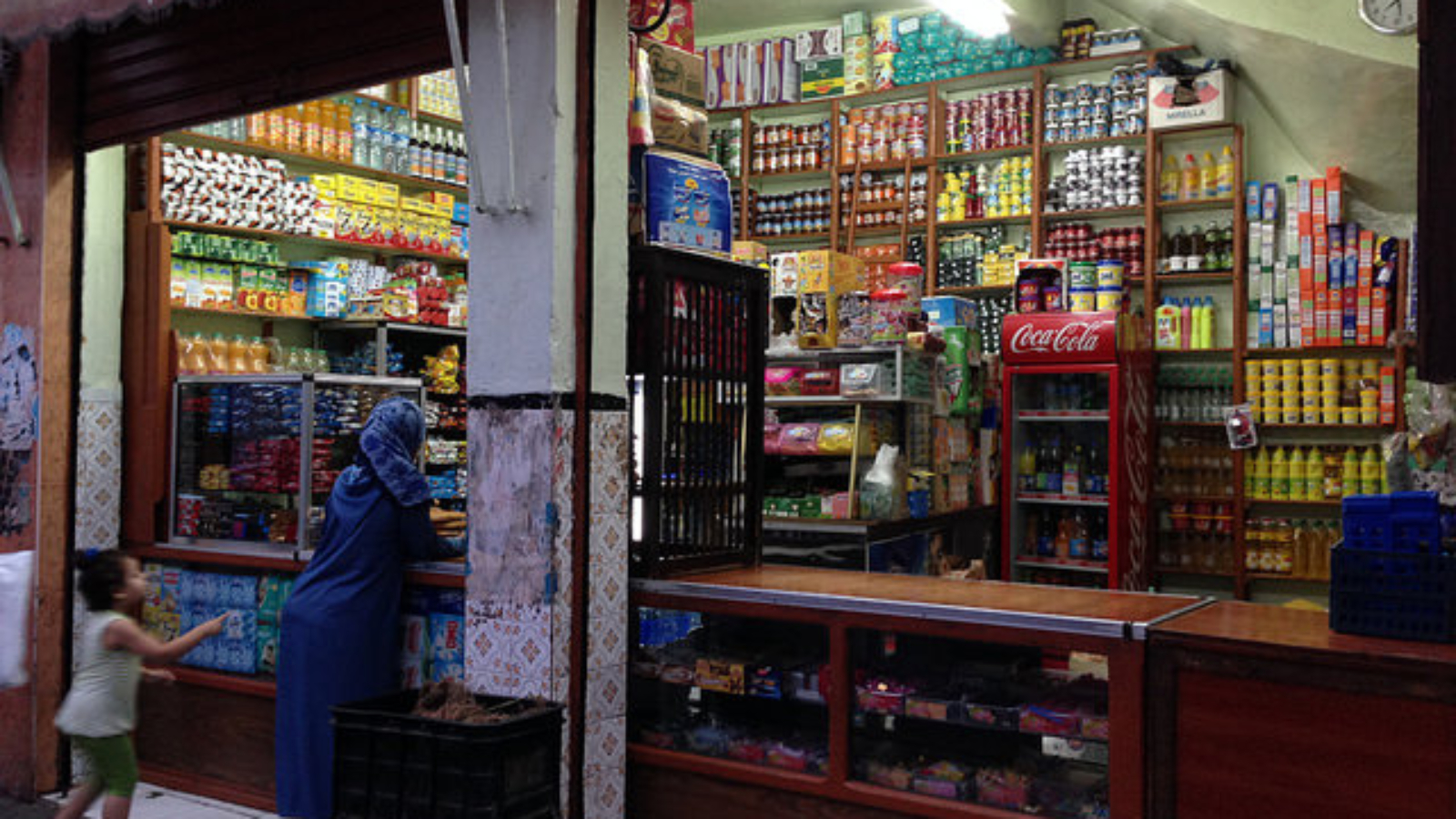This article was originally published on Fair Observer.
by Kaylee Steck
You have just arrived in a Moroccan city. It’s hot and you want to buy a bottle of water. The first place you go is a corner grocery store, called hanout in Moroccan Arabic.
Hanouts form an important part of proximity commerce. They are hubs of social and economic activity that build customer networks through locational convenience and trust. They also provide easy access to small quantities of staple foods and household supplies. Shopping at a hanout is a quick, customized experience with the benefit of special services like delivery of gas canisters for heating water and cooking.
Hanouts offer their clients several other advantages. They create a sense of neighborhood safety by keeping late hours and accommodating rhythms of daily life, such as prayer and meal times. They also give advice as rental agents and matchmakers.
Finally, hanouts provide food security in cash scarce communities by extending credit to their clients. In the absence of formal contracts, credit depends on trust and further reinforces the socially embedded nature of the hanout.
The retail sector in Morocco represents over 10 percent of gross domestic product (GDP) and employs roughly 13 percent of the labor force. Within the sector, large retailers control less than 15 percent of the market. Despite the significance of small retailing in Morocco, the dominant narrative of retail development is that supermarkets will replace small shops. Thus, previous development studies focus primarily on modernizing distribution channels without incorporating local knowledge and institutions.
My fieldwork on corner groceries reveals some issues that might inform future development approaches that are more sensitive to small retailers. In May, I attended a meeting at the headquarters of the Professional Association of Grocers in Casablanca. Association members said that certain suppliers do not give invoices with small deliveries. Invoices let grocers track their purchases and they allow suppliers to monitor their sales for tax purposes. In place of an invoice, grocers receive a bon de livraison or a delivery slip, which is not as rigorous for accounting purposes. Another common complaint was that suppliers refuse to replace expired products, especially in low-income neighborhoods.
Grocers are afraid of exploitation by companies and banks. A program called Hanouty began in 2007 as a private sector attempt to transform hanouts into a recognized chain. Participants received a loan from BMCE Bank to purchase new store appliances and products. Participants said they were overcharged for appliances, and they accused the program of delivering nearly expired products and making false promises. When the program failed and was dismantled in 2012, participants still had to pay back their loans.
In February 2015, a group of small retailers formed a collective to protest in front of Parliament in Rabat. Their demands included stopping the fast growth of supermarkets and their concentration in popular neighborhoods; limiting oppressive tax audits; providing basic social protections; developing the trade sector with respect to maintaining a balance between large and small retailers; and opening a serious dialogue for their participation in the process of addressing these demands.
Despite recent trends in local development, small retailers remain marginalized from decision-making processes. Moreover, their experiences are largely absent from literature dealing with retail development.
Hanouts are places for social and economic transactions, for exchanges of money and advice, for drinking tea and making conversation. As much as they are vital hubs of local culture, hanouts are considered undeveloped spaces and inefficient businesses that do not keep up with modern marketing and merchandising. In other words, they do not fit into the neoliberal order of mass retailing and consumption.
However, this regime is not the only force of change in Morocco. Small retailers play an important role in shaping the direction of change too; their resilience in the face of efforts to transform retailing across the country demands more inclusive approaches to development.
*****
*****
Kaylee Steck is a Researcher in the Fulbright US Student Program. She graduated from the University of Chicago, where she studied Arabic and Islamic Civilization. Her research explores retail development in Morocco, especially from the perspective of small retailers
[Photo courtesy of Andrew Nash]
